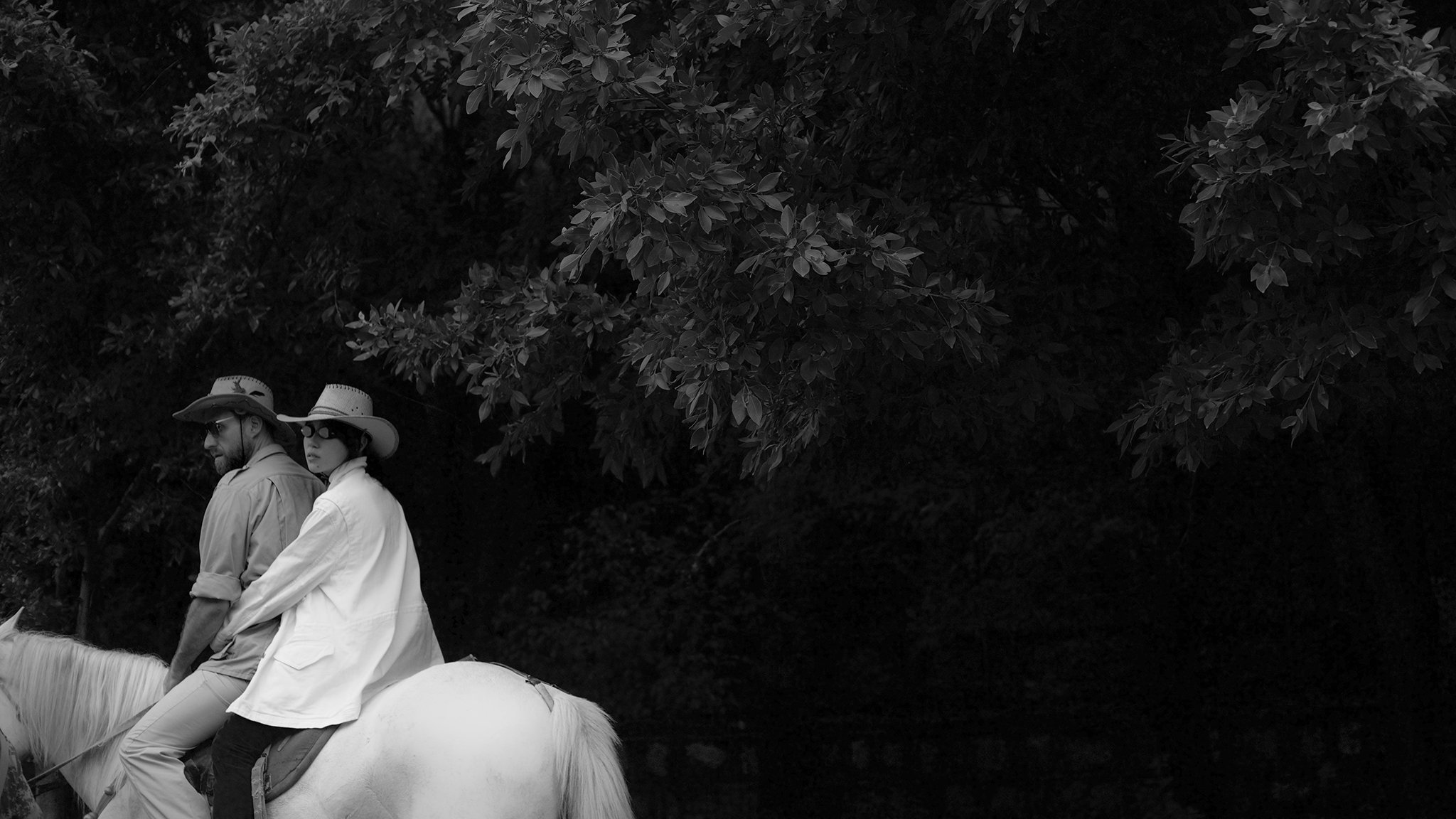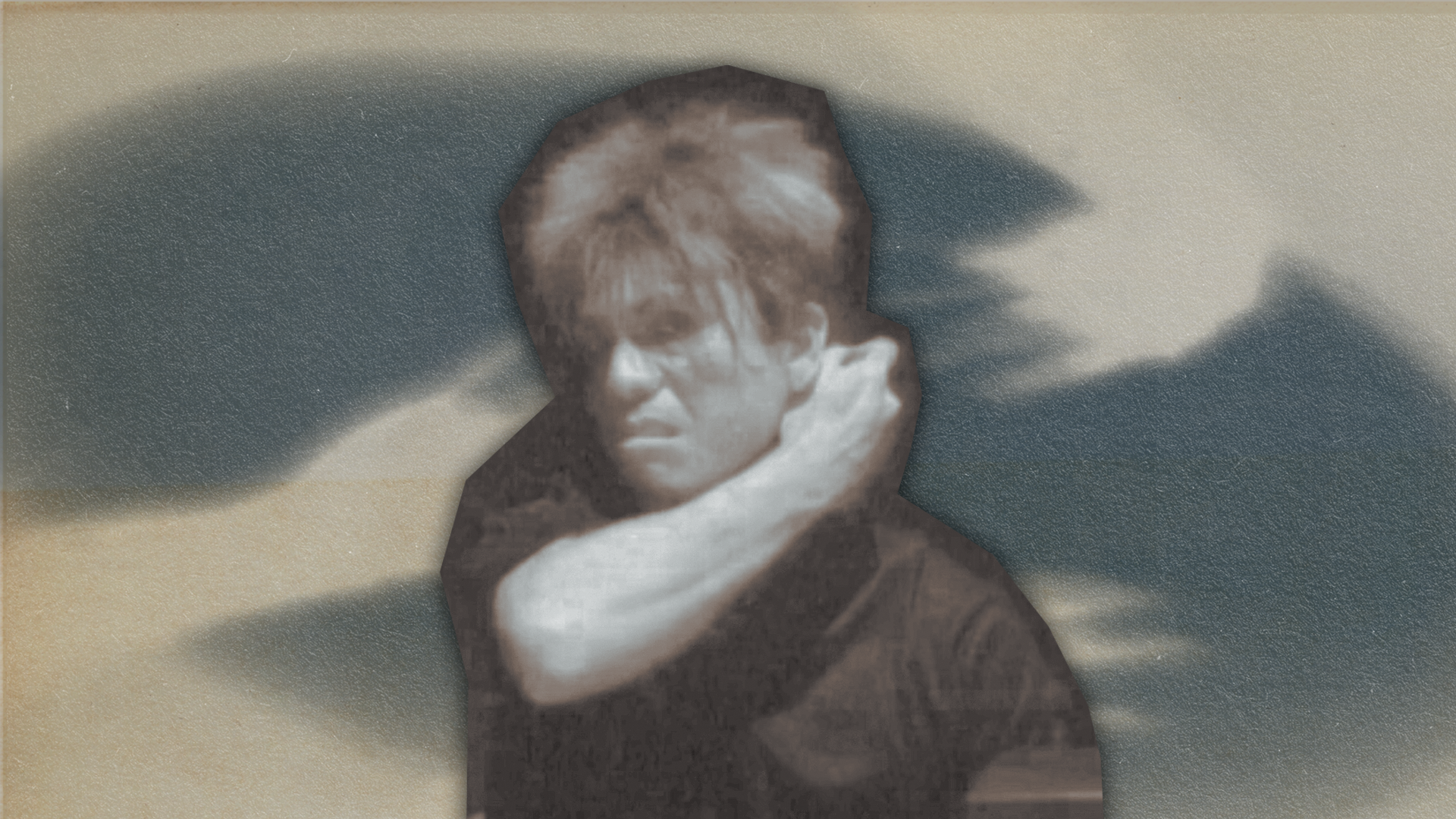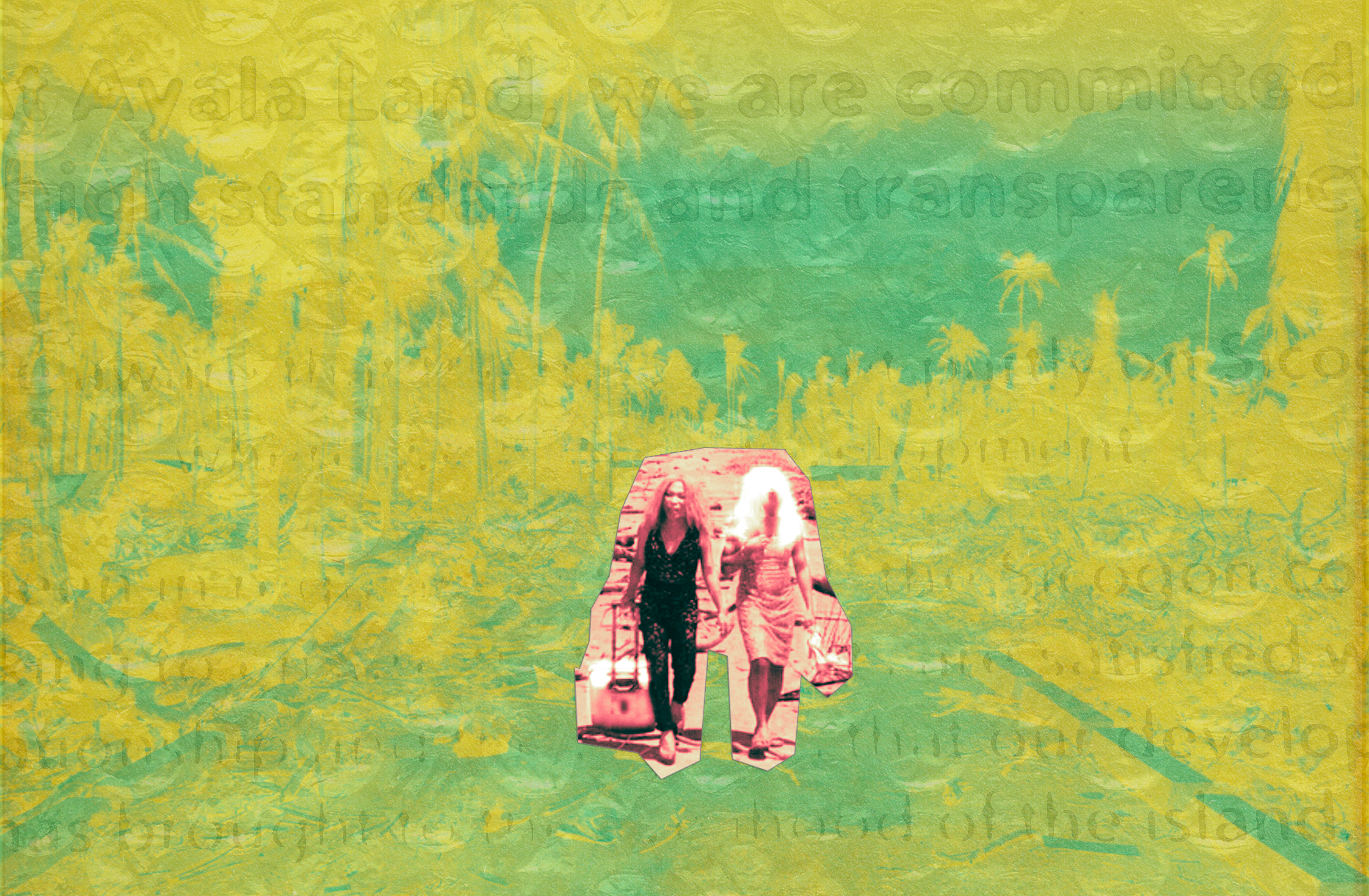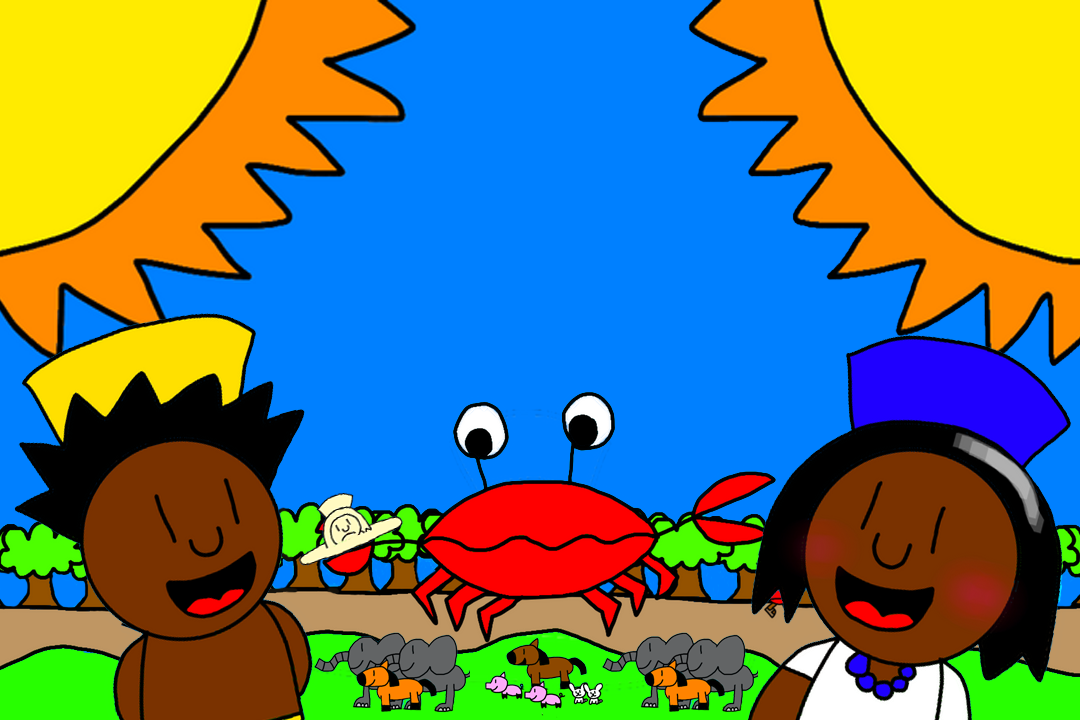Filmmaker Spotlight: Queena Li
Filmmaker’s Spotlight: Queena Li
Of the many black-and-white films last year, there were few as arresting and as eclectic as Queena Li’s debut feature Bipolar. With elements reminiscent of the myth of Orpheus and Eurydice, a young and nameless woman (played by Leah Dou) arrives in Lhasa for a pilgrimage with vague rationale. But when she encounters a holy lobster — glistening and multicolored in one of the film’s many spellbinding moments — she abandons all plans and opts to return it to its home in the Ming Island lighthouse halfway across the country.
Bipolar sends its protagonist across scorching deserts and frigid mountains and into mirrored buildings and unwelcoming communities as she oscillates between extreme emotional states, struggling to regain control over her mind. Li creates an increasingly layered story: a product of collisions between reality and fantasy, true memory and confabulation.
As she moves further away from Lhasa, water, a central element in the film, begins to erode her facade and fragments of her identity become known to us — her background as a singer is mentioned, her birthday, and, much later on, what she is running away from. Bipolar gives shape to grief but also to hope, and the pilgrimage simultaneously shows how one navigates one’s way out of the labyrinth of suffering and depicts the never-ending march towards atonement, happiness, and self-actualization.
Since its debut at the 50th International Film Festival Rotterdam, Bipolar has been screened in the New Directors/New Films selection of Film at Lincoln Center, the Vancouver International Film Festival, and many other festivals to widespread acclaim, and will be playing at the Cinematheque Passion in Macau in January 2022.
In early February 2021, I met with Queena Li via a video conferencing app to talk to her about how she got into filmmaking, jumping into her debut feature, and what kind of media inspires her.
This interview has been edited for brevity and clarity.
How did you start making films?
I studied cinema. The major name is comparative media and film production. I studied in England many years ago. And then because of family problems, I stopped studying and I went back to China and I did some business for several years. Then, I studied in Beijing Film Academy again about directing for a year. Then after that, I went on to make movies. But I didn’t really do much. I did some commercials and some short movies. But this is my first feature film.
Did you love films growing up? Did you watch a lot of them growing up?
Yeah but Western movies. You know? European movies, American movies. But not much compared with my friends and colleagues. They watch a lot. I didn’t really.
You started with a bunch of short films. I wanted to ask: What drew you into making short films?
Why short films? Because when you graduate from the school, they ask you to make a short movie. *laughs* That’s the first reason. You need to make some short movies and prove that you can make something: no matter if it’s good or bad. And then you can find the funds and the fun.
What made you jump into this first feature? I watched the Afterthoughts and I saw that you read a book that really inspired you to make ‘Bipolar’.
I read a novel from my friend and I almost forgot the details of the novel. But at that time, I really liked it and it inspired me. That’s how it started and I wrote a really rough story. I sent it to Leah and Leah liked it and we thought: “Okay. We should do it.” That’s it.
When did you start filming this and how long did it take to film it?
We started May 2019 and we shot for around 66 days.
For your first feature film, what was the main difference between shooting a short versus this longer film? Was it more challenging for you?
Yeah! But the most difficult thing is not the movie itself, but the things around it. The production things, distribution, how you do the promotions...all the other parts of the movie. We are an independent production so I don’t have a producer, so lots of things I have to do by myself. I think that’s what is so challenging for me.
What’s something about the filmmaking process that some people wouldn’t expect? Or what was the funnest part of the process?
I didn’t think of it this way! Like what was the funnest part or the worst part. *laughs*
I think that things are changing every day. We think we’ve done it but it might be changed again the next day. So maybe facing those changes. That’s it. I don’t like it when the work has already settled down or everything is on schedule. I like that things keep changing. It keeps things interesting and exciting. But it’s also difficult for us.
Where do you get your inspiration from?
I think most of the inspiration from me was from books. I mean, I read some books about the mind, about spiritual concepts. I think mostly, I got inspiration from those things and not really movies or music.
Any books that you love or keep going back to?
A director called Khyentse Norbu. He comes from Bhutan. He’s a director and he’s also a writer. He wrote lots of books and I really love it. Before the movie starts, there’s a quote and that sentence is also from his books. That’s how I got inspiration from him. He did five or six different films and he wrote a lot. He also acted a little bit in my movie.
When you create a film, what do you hope to do with your films?
I only did one feature film so I cannot answer the question in general. *laughs* But I think, I wish that they could remember the atmosphere. I think the story is important but not that important. I think the atmosphere is more important than the story. I wish it could inspire people, even in a really weird way. Even if they dislike the movie! But if it can give some inspiration for them, I would think I am lucky. That’s my purpose on my end.
Do you have any upcoming projects?
Uh. I don’t know. Another reporter asked me this: “What’s your next project?” I don’t know. Everything is so impermanent. I don’t even know if I can live to the day after. So I don’t know if I will still be a director or maybe no one will give me money, so I’ll just write stories. I don’t know! I really don’t know.
Like this festival! No one expected that we’d be doing this online. I don’t know if all of us knew that, when we’d finally be involved in a film festival like this, that we’d be doing it online! Interviews and all!
How is the online festival experience for you so far?
It makes me feel like it didn’t happen! *laughs* Because I don’t know who watched the movie and where they wanted the movie. Even the festival programmer asked me some questions from audience members, but then I asked: “Where are they?” I don’t know. They’re just from the internet.
For you, is that cinema experience really important?
I didn’t really join any other big festivals. So I don’t know that feeling. Nothing I can compare with it.
Of course I miss the cinema. I miss the screen being big enough! *laughs* I mean you can just enjoy and experience the feeling more directly. But if you have a big projector screen at home and you close the window and it’s dark enough, actually it’s also fun. You can even drink at home. So it doesn’t really matter as much. Of course, the cinema is better. But it ultimately doesn’t really matter.
One day, we’ll be the last people to go to the cinema. Young people will watch on their phones anytime. Yeah, we have to change. There’s no choice.
Could I ask you for a list of art that you love as a way of introducing yourself to the world?
I actually made a list! Those movies are way better than mine. So I recommend those films because that’s real art.
QUEENA LI’S RECOMMENDATIONS
Book list
What makes you not a Buddhist / written by Dzongsar Jamyang Khyentse
Colorless Tsukuru Tazaki and His Years of Pilgrimage / written by Haruki Murakami
The God Of Small Things / Written by Arundhati Roy
Film and TV series list
The Taste of Tea / Directed by Katsuhito Ishii
Uncle Boonmee Who Can Recall His Past Lives / Directed by Apichatpong Weerasethakul
The Young Pope / Directed by Paolo Sorrentino
Hema Hema: Sing me a song while I wait / Directed by Dzongsar Khyentse Norbu
The Great Beauty / Directed by Paolo Sorrentino
Music list
Tom Waits
Nina Simone
The Ink Spots
Nellie Lutcher
Queena Li’s Bipolar recently screened at the Cinematheque Passion in Macau in January 2022.






















